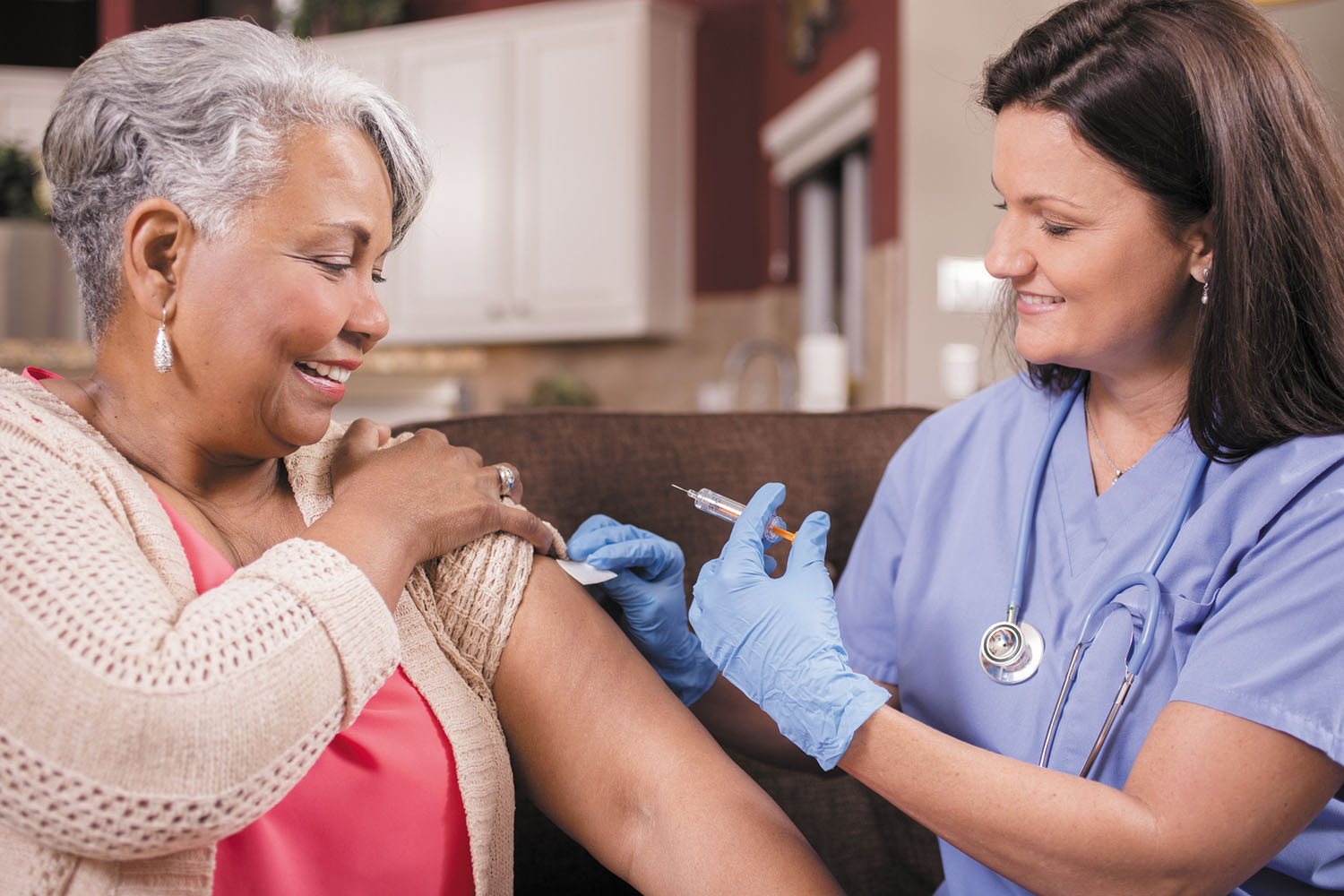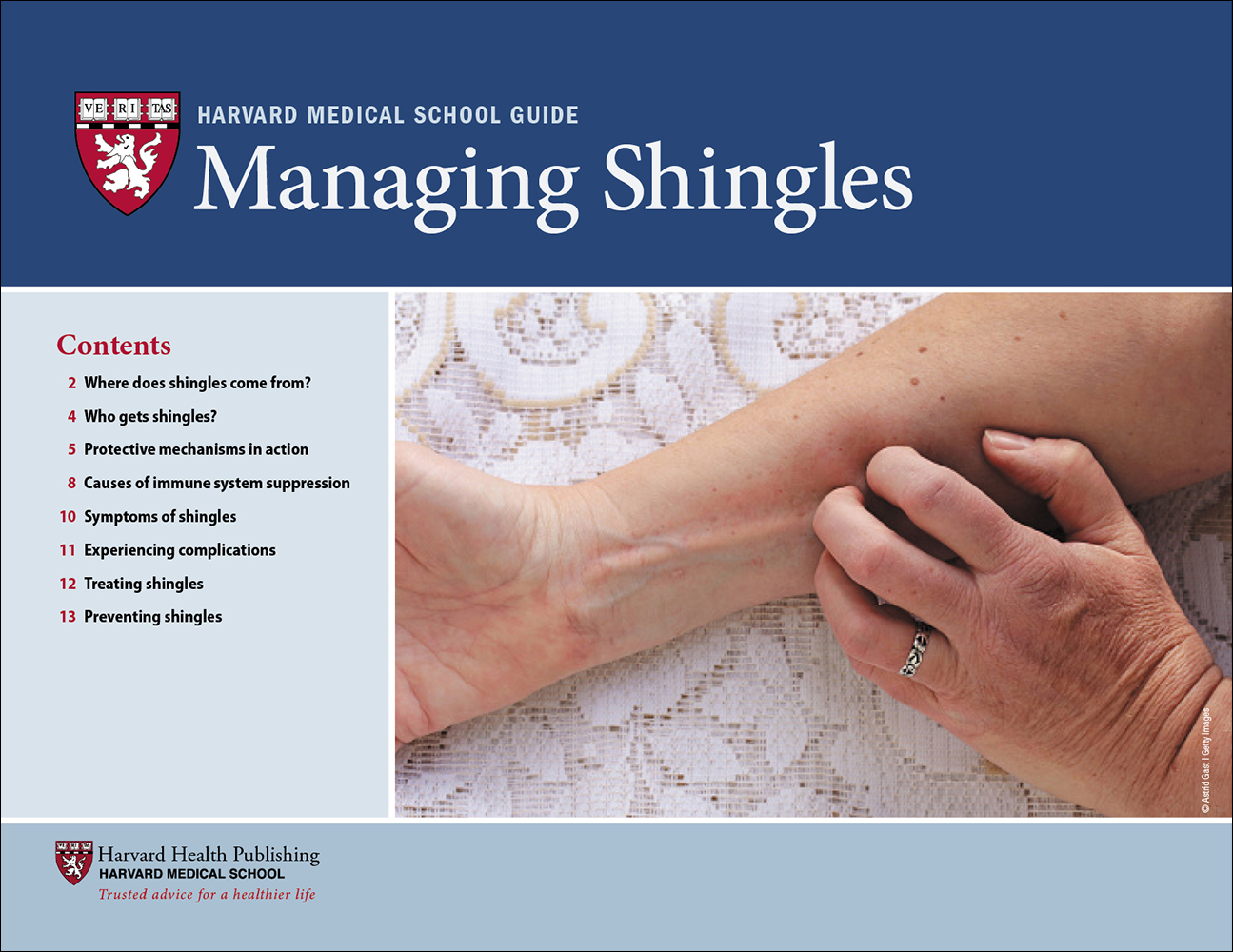Should you get vaccinated against these germs?
With so much focus on COVID vaccines, it’s important for older adults to stay current with the other vaccines.

While a weakened immune system in our older years makes us more vulnerable to infection, there are certain instances where you may not need a vaccination, and others where you'll need a booster or a first-time shot. Here's what you need to know about some important vaccines.
Flu shot
Influenza (the flu) is a highly contagious virus that causes fever, cough, headaches, a sore throat, runny nose, body aches, fatigue, and sometimes vomiting and diarrhea.
Influenza strains change from year to year. Since we have to start making the vaccine months before flu season, we have to make educated guesses about which strains will predominate months later.
One type of flu shot (trivalent) shields us from two A-strain viruses and one B-strain virus. Another type (quadrivalent) protects against two A-strain and two B-strain viruses. Adults ages 65 and over are advised to get the quadrivalent shot or the double dose of the trivalent vaccine.
The 2020–2021 flu season ranked as one of the lowest in severity ever. Why? The main reason was the COVID-19 pandemic. The great majority of people followed the CDC guidelines regarding hand washing, masking, and social distancing. Also, more people than usual got the flu vaccine because of the fear of a double infection with both COVID and influenza.
But influenza will rise again, with complications including pneumonia, that can be really serious: flu kills tens of thousands of older adults each year and hospitalizes many more. Influenza is particularly risky if you have diabetes; heart, lung, or kidney disease; or if you take medication that suppresses the immune system. Even in a year when the vaccine is not perfect, it can still protect your health.
MMR vaccine
In 2000, experts declared that measles was eradicated in the United States. But in 2019 there were more than a thousand cases (the most since 1992), with outbreaks in dozens of states.
Measles causes fever, cough, runny nose, and a telltale rash of tiny red bumps. While the virus is extremely contagious, it's effectively prevented by vaccination. The measles vaccine is included along with vaccines against mumps and rubella in a single shot known as the MMR (measles, mumps, rubella).
Who needs a measles shot? Anyone born in 1957 or after (people born before 1957 have natural immunity because the virus was so widespread), unless there is written documentation in their medical record that they previously got adequate doses of the vaccine or that they actually had the measles. While there are blood tests that can help the doctor determine if you are immune, most doctors think the safest thing is to simply give the vaccine if there is any doubt.
Even when the medical record says a person received measles vaccine, it is possible that they got a weak early vaccine, or got only one shot when they needed two. These people could still be susceptible to measles and should talk to their doctor about a potential booster shot, particularly if they're living in a region in which there is a measles outbreak.
Hepatitis A vaccine
Hepatitis A is a viral infection that can inflame and temporarily damage the liver. Symptoms include fatigue, fever, nausea, and yellowing of the eyes.
The hepatitis A vaccine is extremely effective. But it didn't become available until 1994, so many older adults haven't gotten it. Should you get it now? It's not required for all older adults, but it is advised for individuals who are at higher risk. This includes people traveling to regions where food and water are often contaminated with the virus (see www.cdc.gov/travel/destinations/list), people in close contact with others who are sick with hepatitis A infection or live in residential settings like nursing homes, people who engage in receptive anal intercourse, and people who are in contact with the blood of someone who has the infection (such as when sharing drug needles).
Shingles vaccine
Shingles is caused by varicella-zoster virus, the same virus that causes chickenpox. While shingles is often just temporary, it can cause nerve pain that can linger for years. And it can recur.
There is now only one shingles vaccine, Shingrix, which the FDA approved in 2017. Shingrix has been found to be about 90% effective. That's far higher than the first shingles vaccine called Zostavax, which is no longer available. The CDC recommends two doses of Shingrix, for all adults ages 50 or older, even if they've already had Zostavax.
Tetanus vaccine
Tetanus is caused by a bacterium (Clostridium tetani) that lives in the soil. When the bacteria get into the body, perhaps from a bad scrape, they make a toxin that damages the nervous system and causes muscle-tightening disease (such as lockjaw). Tetanus boosters are recommended at least once every 10 years. Depending on your circumstances, such as potential close contact with pregnant women or young children, your doctor may recommend a combination vaccine such as Td (tetanus and diphtheria) or Tdap (tetanus-diphtheria-pertussis).
Pneumococcal vaccine
Pneumonia is tricky in older adults. It may not cause a fever, shortness of breath or a cough, but may lead to confusion or cause pain when you're trying to take a deep breath.
The pneumococcal vaccine helps protect against bacteria that cause pneumonia as well as bacteremia (bacteria in the bloodstream) and meningitis (inflammation of the lining of the brain).
There are two pneumonia vaccines available.
The CDC recommends one dose of the PPSV23:
- All adults 65 years or older
- People 2 through 64 years old with certain medical conditions
- Adults 19 through 64 years old who smoke cigarettes
The other vaccine PCV13 is primarily for young children. However, older adults can discuss also getting this additional vaccine with their doctor.
Image: © fstop123/Getty Images
Disclaimer:
As a service to our readers, Harvard Health Publishing provides access to our library of archived content. Please note the date of last review or update on all articles.
No content on this site, regardless of date, should ever be used as a substitute for direct medical advice from your doctor or other qualified clinician.













